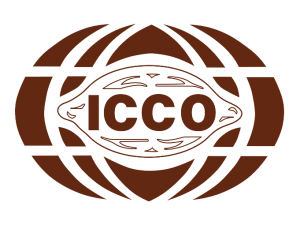London, 20 March 2014 — The home of the world’s highest per capita consumers of chocolate became the appropriate venue for the 89th session of the International Cocoa Council, hosted by the kind invitation of the Government of Switzerland, at the Radisson Blu Zurich Airport hotel in Zurich, 7 – 11 March.
Delegates were welcomed to Switzerland by the State Secretary, Her Excellency Marie-Gabrielle Ineischen-Fleisch, who reminded delegates of her country’s crucial role in the world’s chocolate sector, and also highlighted ongoing Swiss efforts in developing sustainability in the cocoa supply chain.
 Among the issues under discussion in Zurich were the plans for the second edition of the World Cocoa Conference (WCC) at the RAI Convention Centre in Amsterdam in June, and ICCO Executive Director Dr. Jean-Marc Anga was able to report that four Ministers were already scheduled to be on hand officially to open the event. Besides an attractive slate of speakers and panellists from around the world, he added, the Amsterdam WCC was already guaranteed to bring together a host of top executives from the world’s largest cocoa and chocolate companies.
Among the issues under discussion in Zurich were the plans for the second edition of the World Cocoa Conference (WCC) at the RAI Convention Centre in Amsterdam in June, and ICCO Executive Director Dr. Jean-Marc Anga was able to report that four Ministers were already scheduled to be on hand officially to open the event. Besides an attractive slate of speakers and panellists from around the world, he added, the Amsterdam WCC was already guaranteed to bring together a host of top executives from the world’s largest cocoa and chocolate companies.
Dr. Anga also explained that cocoa farmers from all over the world were to be sponsored to attend the Conference, bringing their voices to the debate on the most important issues in cocoa that were to be tackled at the meeting.
The World Cocoa Foundation, CAOBISCO and the Dutch Sustainable Trade Initiative IDH among several others, were all involved in special sessions to take place alongside the main Conference, Dr. Anga said, and the Dutch group of stakeholder organizations was planning on holding a series of interactive sessions to enlarge on and develop the themes of the WCC. To top it all off, he said, the Conference Dinner is to be held in Amsterdam’s spectacular National Maritime Museum and is set to become 2014’s premier cocoa networking opportunity.
At the accompanying meeting of the enlarged, private sector-led Consultative Board on the World Cocoa Economy, Dr. Anna Laven of the Royal Tropical Institute in the Netherlands outlined the new blogs that are being created on the Cocoa Connect website to tie together the themes to be addressed at the Amsterdam WCC.
 A report on the recently concluded second Certification Workshop was also presented to the Consultative Board, highlighting progress in identifying commonalities in standards and benefits for all stakeholders, and especially cocoa producers. While the social and environmental pillars of sustainability were already being addressed, the participants of the workshop found that it was the economic pillar—which encompasses farmer livelihoods—that still required much work.
A report on the recently concluded second Certification Workshop was also presented to the Consultative Board, highlighting progress in identifying commonalities in standards and benefits for all stakeholders, and especially cocoa producers. While the social and environmental pillars of sustainability were already being addressed, the participants of the workshop found that it was the economic pillar—which encompasses farmer livelihoods—that still required much work.
Taking its cue from the Workshop itself, part of the Board’s sessions were conducted using an interactive ‘forum’ technique, inviting small groups of participants to discuss significant topics around tables of 12, each complete with a moderator and rapporteur. This method was found by the participants to be both stimulating and practical, and is being considered as a regular fixture for future ICCO meetings.
 Council Chairman Anna Tofftén of Sweden who presided over the main meeting, introduced Dr. Stephen Opuni, the new CEO of the Ghana Cocoa Board, and the Council considered reports from the ICCO’s Economics and Administration and Finance Committees, which both met alongside the Council in Zurich.
Council Chairman Anna Tofftén of Sweden who presided over the main meeting, introduced Dr. Stephen Opuni, the new CEO of the Ghana Cocoa Board, and the Council considered reports from the ICCO’s Economics and Administration and Finance Committees, which both met alongside the Council in Zurich.
The Council noted with regret that the Zurich meeting would be the final appearance of the Spokesman of the Consuming Countries, Mr. Rüdiger Ohst of Germany, who had served with distinction for several years, but was moving to a new role within his government.
A taste of Switzerland was offered to the Council delegates with a demonstration of fine chocolate making by Zurich-based confectionery giant Lindt & Sprüngli, whose master chocolatiers showed the way that quality cocoa, in the right hands, can create the sort of attractive and tasty products that are loved by consumers worldwide.
Click to download presentations from the Zurich meetings:
CAOBISCO / ECA / FCC - SPS ProjectsRoyal Tropical Institute (KIT, Netherlands)
Brazil / CEPLAC Cameroon / ONCCIndonesia – Public Private Partnerships
Switzerland – Sustainability
Germany / GIZ – Cocoa Food Link Programme
World Cocoa Foundation – Planting Material
ICCO World Cocoa Economy – Present and Future
Outcome of the Zurich Certification Workshop

 London, 18 March 2014 — Over 70 stakeholders from Europe, the US, Africa, Latin America and Southeast Asia took part in the ICCO’s second International Workshop on Cocoa Certification in Zurich, Switzerland on 6 and 7 March, the Organization reported today.
London, 18 March 2014 — Over 70 stakeholders from Europe, the US, Africa, Latin America and Southeast Asia took part in the ICCO’s second International Workshop on Cocoa Certification in Zurich, Switzerland on 6 and 7 March, the Organization reported today.